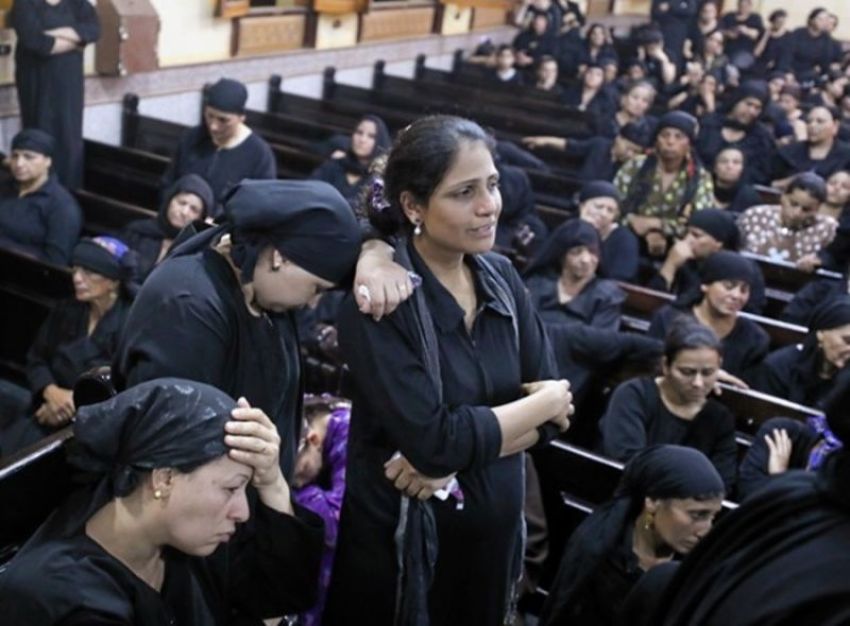Churches in Egypt Shut Down Summer Activities Amid Heightened Attacks Against Christians

Acting on the advice of Egypt's security services, the country's churches have canceled conferences, tours and other events scheduled for this month amid threats of more attacks on the minority community.
"These measures have come after our community has experienced brutal attacks against innocent women, men and children across Egypt, and we pray will help to safeguard against future atrocities," Bishop Angaelos of the Coptic Orthodox Church in the United Kingdom said, noting that he has spoken to colleagues in Cairo and learned that "the current campaign of terror against Christians is escalating rapidly."
He added, "This unfortunate step comes at a time when children, young people and families will be deprived of the conferences and trips that they so look forward to over the summer period and have grown accustomed to over decades. Saying that however, it is of course more important, while recognising their huge disappointment, to do our best to ensure their safety."
At least 117 Coptic Orthodox Christians have been murdered across the country since December, according to the Coptic Orthodox Church in Europe.
"This campaign began with the bombing of St Peter's Coptic Orthodox Church in Cairo in December 2016, and followed by Palm Sunday church bombings in Tanta and Alexandria, an attack on pilgrims visiting a monastery in Minya, and targeted attacks on individuals across Egypt," Bishop Angaelos notes.
Palm Sunday bombings killed 45 Christians.
Islamic State, also known as IS, ISIS, ISIL or Daesh, claimed responsibility for those attacks. IS also signaled while claiming responsibility that more attacks were coming: "The Crusaders and their apostate followers must be aware that the bill between us and them is very large, and they will be paying it like a river of blood from their sons, if God is willing."
Among the 29 killed in the Minya attack on May 26 were also children, including a 2-year-old girl.
The Christians were traveling in two buses and a small truck in Minya, which is home to a sizeable Christian minority, when they were attacked. Masked gunmen stopped the vehicles on a road leading to the monastery and opened fire.
One of the survivors of the massacre said that IS extremists forced the women off the bus and ordered them to renounce their faith in Christ, but the Copts refused.
Sinai Province, the name of the local affiliate of IS in Egypt, is seeking to impose a hardline interpretation of Islam in the country.
The killing of Christians and efforts to instill terror in everyday life are part of the extremists' mission to unravel the entire country, according to experts.
Mokhtar Awad, a research fellow in the program on extremism at George Washington University, told Reuters that IS wants to tear "at the fabric of society."
"A confluence of factors has seen this escalation happen now," Awad said. "They hope that this is the first step to basically unravel the country."
"The developments reflect how Islamic State is expanding operations in the Arab world's most populous country as the extremist group faces setbacks in Syria, Iraq and Libya, say analysts," according to a Reuters report. "While the group has failed to capture territory in Egypt, it is trying to stoke sectarian tensions and social unrest. An examination of what's happening in North Sinai, a region rarely accessible by reporters, shows the strategy is scoring some success."
Coptic Christians make up about 10 percent of Egypt's population of 92 million.



























